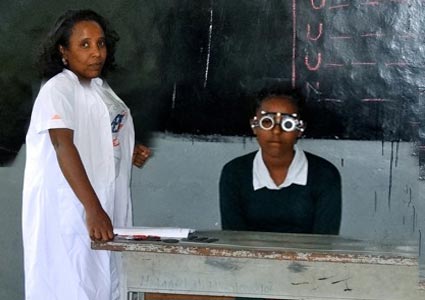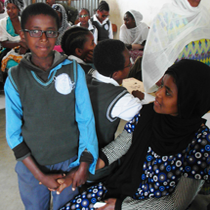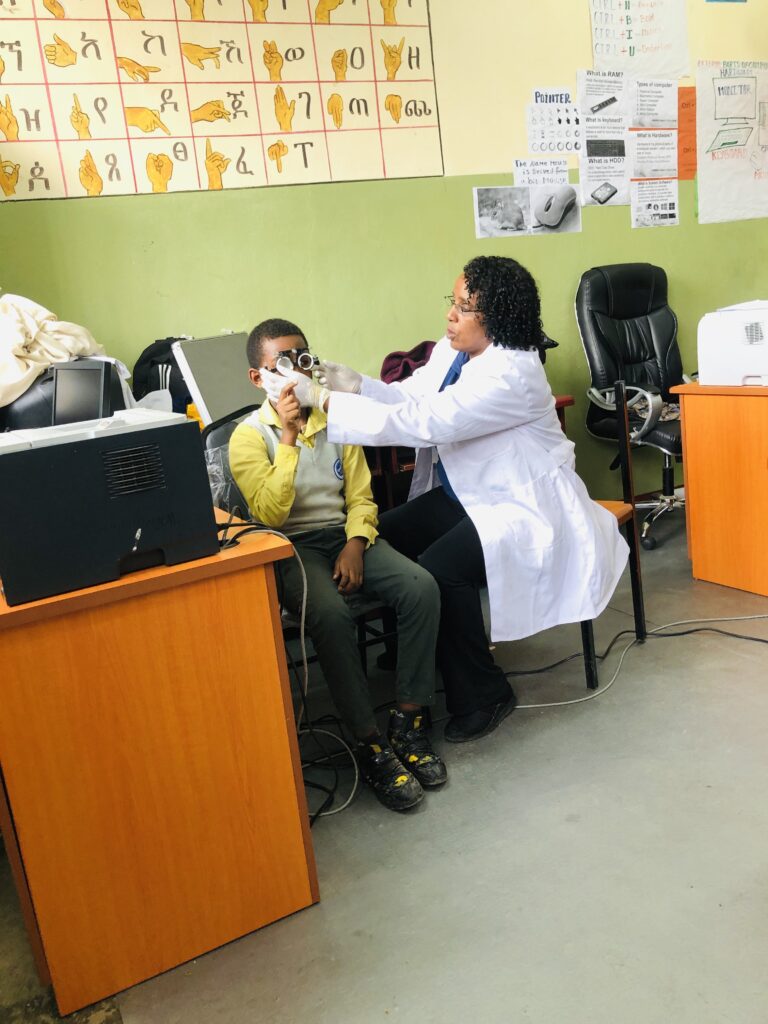
The School Eye Health component of the school health and nutrition program was launched in 2015 to meet the challenges school children with poor vision face. Low vision care services affect schoolchildren unproportionally as 80% of learning is visual, and students who cannot afford to purchase eyeglasses often do poorly in school and struggle with low self-esteem. The goal of the SEH project is to improve the vision of students enrolled in public primary schools in Ethiopia.
As part of this initiative, teachers receive training in vision screening , students received on-site vision screening, refraction, and eyeglasses. Over 62,000 students screened, and 1,300 eyeglasses dispensed in tandem with raising awareness about vision care among school community.


The low uptake of using eyeglasses has improved over the years of working with schools, teachers and parents. Teachers have noted improved academic performance and health outcomes among students who received eyeglasses. We are grateful to the support of our partners, donors, and volunteers who helped make this initiative a success.
